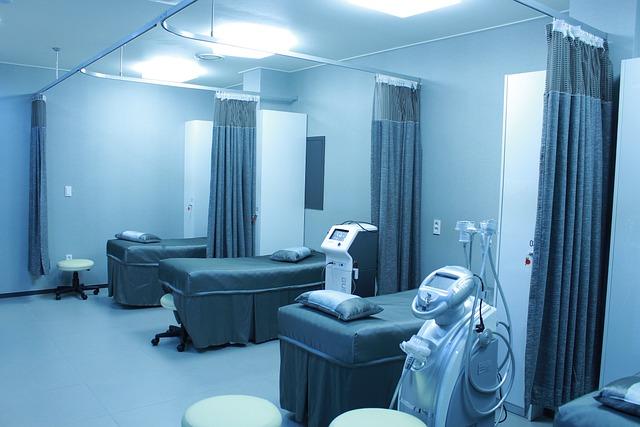Introduction:
In recent years, the field of oncology has witnessed groundbreaking developments, with innovative approaches transforming the landscape of cancer treatment. This article delves into the latest advances in cancer treatment, exploring how technology, immunotherapy, and personalized medicine are revolutionizing the fight against this devastating disease.
The Promise of Immunotherapy:
Immunotherapy represents a groundbreaking approach in the field of medicine and oncology that harnesses the body’s own immune system to fight diseases, particularly cancer. This innovative treatment strategy has generated significant excitement and holds tremendous promise for revolutionizing the way we approach cancer and other diseases. The core concept of immunotherapy is to bolster the immune system’s ability to recognize and destroy abnormal cells, and in doing so, it has opened up new horizons for treating a wide range of conditions. This article delves into the exciting world of immunotherapy, exploring its principles, successes, challenges, and the far-reaching promise it holds.
Understanding Immunotherapy:
Immunotherapy is a category of medical interventions that manipulates the immune system to target and combat diseases. Its primary objective is to enhance the body’s natural ability to identify and destroy foreign invaders or malfunctioning cells. This approach stands in contrast to traditional treatments such as chemotherapy and radiation, which directly target cancer cells but often cause collateral damage to healthy tissues. Immunotherapy offers a more precise and selective way to fight diseases, minimizing side effects and improving patient outcomes.

Cancer Immunotherapy:
One of the most prominent and promising applications of immunotherapy is in the field of cancer treatment. In many cases, cancer cells can evade the immune system’s surveillance, allowing tumors to grow unchecked. Immunotherapy seeks to overcome these evasive tactics and enable the immune system to recognize and eliminate cancer cells.
Targeted Therapies: A Precision Approach
In the realm of modern medicine, the paradigm of treatment has shifted towards a more precise and individualized approach. Targeted therapies have emerged as a groundbreaking method that aims to selectively target the underlying mechanisms of diseases, offering a more effective and less toxic alternative to traditional treatments. This article explores the concept of targeted therapies, their principles, successes, and their role in revolutionizing medical practice.

Understanding Targeted Therapies:
Targeted therapies are a category of medical interventions designed to interfere with specific molecules or pathways involved in disease processes. Unlike traditional treatments, such as chemotherapy or radiation, which broadly affect both healthy and diseased cells, targeted therapies are highly specific. They work by identifying and attacking particular proteins, genes, or other molecules that drive the growth and survival of abnormal cells while sparing normal cells. This precision is particularly valuable in reducing side effects and improving patient outcomes.
Cancer Targeted Therapies:
Cancer is one of the primary domains where targeted therapies have made significant strides. The development of targeted cancer therapies often begins with the identification of genetic mutations or abnormal protein expression that are specific to cancer cells.
Success Stories:
Targeted therapies have transformed the landscape of cancer treatment. They have yielded remarkable results in various malignancies, often leading to improved survival rates and enhanced quality of life for patients. Notable success stories include the use of imatinib in the treatment of chronic myeloid leukemia (CML), trastuzumab for HER2-positive breast cancer, and vemurafenib for BRAF-mutated melanoma. These therapies have set the stage for further research and development in personalized cancer care.

Beyond Cancer:
While cancer has been the primary focus of targeted therapies, the concept extends to other diseases as well. Targeted therapies have shown promise in the treatment of autoimmune disorders, genetic disorders, and infectious diseases. By precisely targeting the underlying mechanisms of these conditions, researchers and healthcare providers are working to improve patient outcomes and minimize side effects.
Challenges and Future Directions:
Despite their promise, targeted therapies face challenges such as the development of drug resistance, the high cost of treatment, and the need for extensive genetic testing. Moreover, not all patients will benefit equally from targeted therapies, underscoring the importance of continued research to refine these treatments and identify new targets.
The Role of Artificial Intelligence:
Artificial Intelligence (AI) has emerged as a game-changing technology in the field of cancer treatment. With its ability to process vast amounts of data and perform complex tasks, AI is helping oncologists, researchers, and healthcare providers make significant strides in cancer detection, diagnosis, treatment, and patient care. This article explores the critical role of AI in revolutionizing cancer treatment and how it is contributing to more precise, efficient, and effective cancer care.
AI is playing an increasingly vital role in transforming cancer treatment, offering more accurate diagnoses, personalized treatment plans, and novel therapeutic options. As AI technologies continue to evolve and become more integrated into clinical practice, they will further improve the effectiveness and precision of cancer care, ultimately benefiting patients and advancing the fight against this devastating disease.
Liquid Biopsies: A Non-Invasive Breakthrough
Cancer treatment has witnessed significant advancements over the years, and one of the most groundbreaking developments in recent times is the emergence of liquid biopsies. These non-invasive diagnostic tests have revolutionized the field of oncology by providing a safer, more accessible, and less invasive method for detecting and monitoring cancer. This article explores the concept of liquid biopsies and their role as a game-changing tool in cancer diagnosis and treatment.
Understanding Liquid Biopsies:
A traditional biopsy involves the surgical removal of a tissue sample for analysis, which can be invasive, painful, and associated with certain risks. In contrast, liquid biopsies, also known as blood-based biopsies, use a simple blood draw to analyze circulating tumor DNA (ctDNA), circulating tumor cells (CTCs), and other biomarkers present in the bloodstream. These tests have the potential to detect cancer at an earlier stage, monitor treatment response, and identify genetic mutations associated with the disease.
Key Benefits of Liquid Biopsies in Cancer Treatment:
Early Detection:
Liquid biopsies can detect cancer at an earlier stage than traditional biopsies. By identifying genetic mutations or alterations in ctDNA, these tests provide an opportunity for early intervention when cancer is more treatable and potentially curable.
Monitoring Treatment Response:
Liquid biopsies offer a non-invasive way to monitor a patient’s response to cancer treatment. By analyzing changes in ctDNA over time, healthcare providers can assess the effectiveness of therapies, enabling them to make timely adjustments to treatment plans.
Personalized Treatment:
Liquid biopsies can identify specific genetic mutations or alterations in cancer cells. This information allows oncologists to tailor treatment regimens to target the molecular characteristics of a patient’s cancer, optimizing the chances of success while minimizing side effects.
Minimal Discomfort and Risk:
Traditional biopsies often require invasive procedures, which can lead to pain, discomfort, and complications. Liquid biopsies, on the other hand, are as simple as a routine blood draw and pose minimal risk to patients.
Applications in Cancer Treatment:
Lung Cancer:
Liquid biopsies have demonstrated their utility in identifying genetic mutations like EGFR and ALK in lung cancer patients. This information guides oncologists in selecting the most appropriate targeted therapies, leading to improved outcomes.
Breast Cancer:
In breast cancer, liquid biopsies can help assess the presence of hormone receptors (e.g., estrogen and progesterone receptors) and the HER2 gene. This information assists in the development of personalized treatment plans, including hormone therapy or HER2-targeted drugs.
Monitoring Recurrence:
Liquid biopsies are valuable tools for monitoring cancer survivors for disease recurrence. By regularly analyzing ctDNA in the bloodstream, healthcare providers can detect signs of cancer’s return earlier than with traditional methods.
Challenges and Future Directions:
While liquid biopsies have shown immense promise, challenges remain. These tests may not be as comprehensive as traditional biopsies in some cases, and the detection of ctDNA may not always indicate the presence of cancer. Furthermore, cost and insurance coverage can be barriers to widespread adoption.
In the future, continued research and technological advancements are expected to further enhance the accuracy and scope of liquid biopsies. These tests are likely to play an increasingly pivotal role in cancer diagnosis, treatment decision-making, and patient care, ultimately offering hope for improved outcomes and a less invasive approach to managing cancer.
CAR-T Cell Therapy: A Revolutionary Immunotherapy
CAR-T cell therapy, short for Chimeric Antigen Receptor T-cell therapy, is a groundbreaking form of immunotherapy that has revolutionized the treatment of certain types of cancer. This innovative approach harnesses the power of a patient’s own immune system to target and destroy cancer cells. CAR-T cell therapy has shown remarkable success in treating blood cancers, particularly leukemia and lymphoma, and it represents a significant advancement in the field of oncology.
Key elements of CAR-T cell therapy include:
Patient-Specific Treatment: CAR-T cell therapy is personalized for each patient. It starts by collecting the patient’s own T cells, a type of white blood cell central to the immune system.
-
- Genetic Engineering: The collected T cells are then genetically modified to express Chimeric Antigen Receptors (CARs) on their surface. These CARs are designed to recognize specific proteins or antigens found on the surface of cancer cells.
- Infusion: After the T cells are engineered to express CARs, they are expanded in the laboratory to create a large population of these modified cells. Subsequently, they are infused back into the patient’s body.
- Targeting Cancer Cells: Once inside the patient, the CAR-T cells patrol the bloodstream, searching for cancer cells that display the specific antigen targeted by the CARs. When they encounter cancer cells, the CAR-T cells become activated and launch a potent immune response against the cancer.
- Potent Anti-Cancer Response: CAR-T cells are highly effective at killing cancer cells. They can rapidly multiply, enhancing their numbers and their ability to combat the cancer.
- Long-Term Memory: After treatment, some CAR-T cells may persist in the body, forming a type of immune memory. This memory can help the immune system recognize and fight any potential cancer cell resurgence.
CAR-T cell therapy has yielded remarkable results in patients with certain blood cancers. It has led to deep and sustained remissions, with some patients considered functionally cured. Notable success stories include its use in treating pediatric acute lymphoblastic leukemia (ALL) and adult diffuse large B-cell lymphoma (DLBCL). These therapies have provided new hope for patients who previously had limited treatment options and have demonstrated the potential to change the course of cancer treatment.
However, CAR-T cell therapy is not without challenges. It can lead to side effects, such as cytokine release syndrome and neurological symptoms, which need to be carefully managed. Moreover, its high cost and the need for specialized facilities for production and administration present logistical and financial challenges.
Nonetheless, CAR-T cell therapy remains a transformative approach in the fight against cancer and a testament to the power of immunotherapy. Ongoing research and clinical trials are expanding the application of CAR-T cell therapy to a wider range of cancers, promising a future where more patients can benefit from this revolutionary treatment.
Also Check: Medium.com
Conclusion:
In conclusion, the latest advances in cancer treatment are offering new hope to patients worldwide. From immunotherapy and targeted therapies to AI-driven diagnostics and cutting-edge surgical techniques, the field of oncology is evolving rapidly. With a focus on early detection and drug resistance, the future of cancer treatment looks promising.
FAQs:
1. What is immunotherapy, and how does it work?
Immunotherapy is a revolutionary cancer treatment that harnesses the body’s immune system to fight cancer cells. It works by enhancing the immune system’s ability to detect and destroy cancer cells.
2. How does AI play a role in cancer treatment?
Artificial Intelligence (AI) is used in cancer treatment to assist in early diagnosis, treatment planning, and even drug development. It can analyze vast amounts of data to provide more accurate and personalized treatment options.
3. What are liquid biopsies, and why are they important?
Liquid biopsies are non-invasive tests that analyze blood samples for the presence of cancer-related genetic mutations and markers. They are crucial for early cancer detection and monitoring treatment progress.
4. Can you explain CAR-T cell therapy?
CAR-T cell therapy is a form of immunotherapy where a patient’s T cells are genetically engineered to target and destroy cancer cells. It has shown remarkable success in treating certain types of cancer.
5. How are targeted therapies personalized for cancer patients?
Targeted therapies are customized for each patient based on their specific genetic makeup and the characteristics of their cancer. This approach ensures a more effective and tailored treatment plan.



